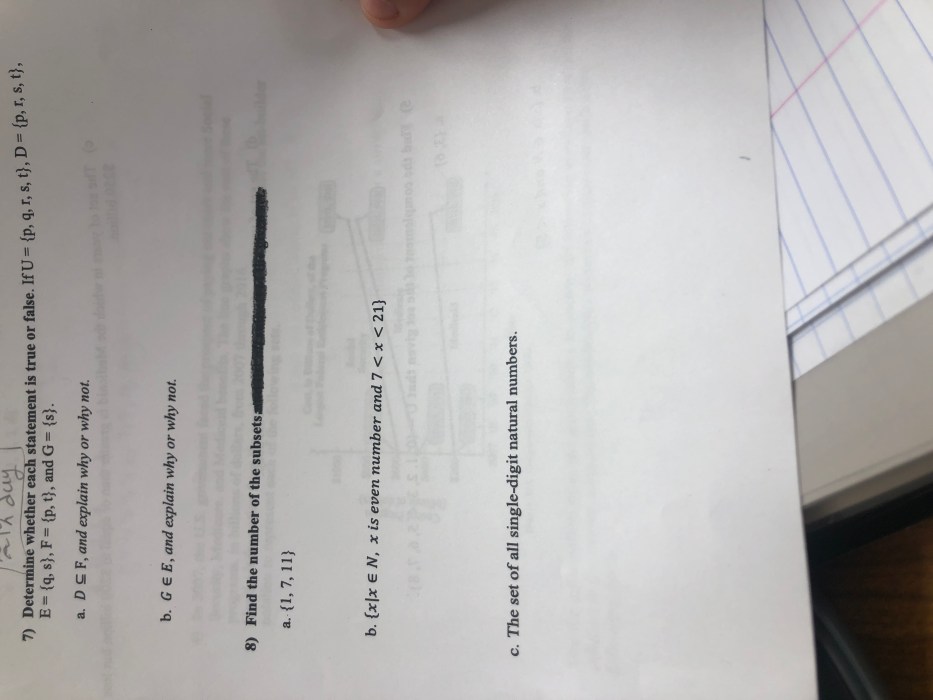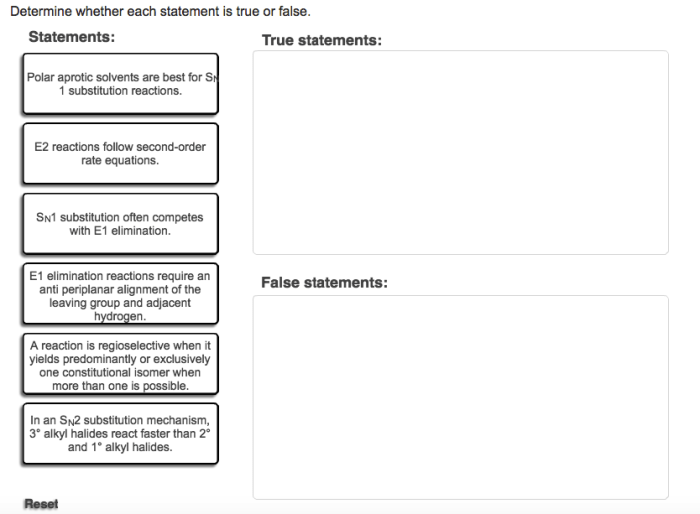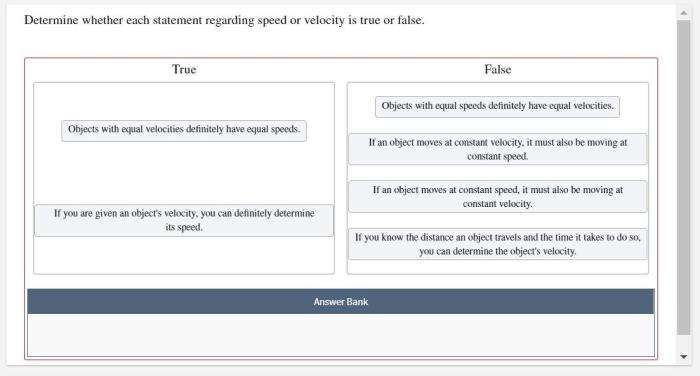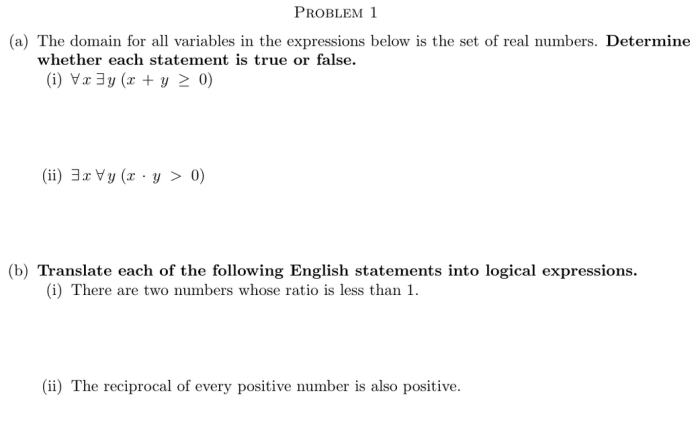Determine whether each statement is true or false – Determining the truthfulness of statements is a fundamental skill in various fields. This guide provides a comprehensive overview of the concept, methods, and applications of determining whether each statement is true or false.
This guide will explore the different methods and approaches used to determine the truthfulness of a statement, evaluate their effectiveness, and discuss the challenges and limitations of each method.
Determining the Truthfulness of Statements

Determining the truthfulness of statements is a fundamental concept in various fields, including research, law, and journalism. It involves assessing the accuracy and validity of claims or assertions to establish their factual basis and reliability.
Methods and Approaches
- Empirical Evidence:Gathering data through observation, experimentation, or surveys to provide concrete evidence supporting or refuting a statement.
- Logical Reasoning:Analyzing statements based on logical principles and deductive or inductive reasoning to determine their validity.
- Historical Analysis:Examining historical records and documents to verify the accuracy of statements about past events.
- Expert Testimony:Consulting with individuals with specialized knowledge or expertise in the relevant field to provide informed opinions.
Examples and Case Studies, Determine whether each statement is true or false
Example: Determining the truthfulness of a claim that “the Earth is flat” requires examining empirical evidence from scientific observations and logical reasoning to establish its falsity.
Case Study: In the landmark trial of the OJ Simpson murder case, the prosecution and defense used various methods to determine the truthfulness of witness statements, including DNA evidence, witness credibility analysis, and logical reasoning.
Critical Evaluation
Each method for determining truthfulness has strengths and limitations. Empirical evidence provides concrete data but can be influenced by bias or experimental errors. Logical reasoning is based on assumptions and may not account for all relevant factors. Historical analysis relies on the accuracy of historical records, which may be incomplete or biased.
Applications and Implications
The concept of determining truthfulness is applied in fields such as research, where empirical evidence is used to validate scientific theories; law, where evidence is presented to determine guilt or innocence; and journalism, where facts are verified to ensure accurate reporting.
Ethical and social implications include the potential for misuse of methods to manipulate or deceive, the importance of critical thinking to evaluate the validity of statements, and the responsibility to uphold truthfulness in public discourse.
Common Queries: Determine Whether Each Statement Is True Or False
What is the importance of determining whether a statement is true or false?
Determining the truthfulness of statements is crucial for making informed decisions, avoiding misinformation, and promoting critical thinking.
What are the different methods used to determine the truthfulness of a statement?
Common methods include logical reasoning, empirical evidence, expert testimony, and historical analysis.
What are the challenges in determining the truthfulness of a statement?
Challenges include bias, limited information, and the complexity of the statement itself.


